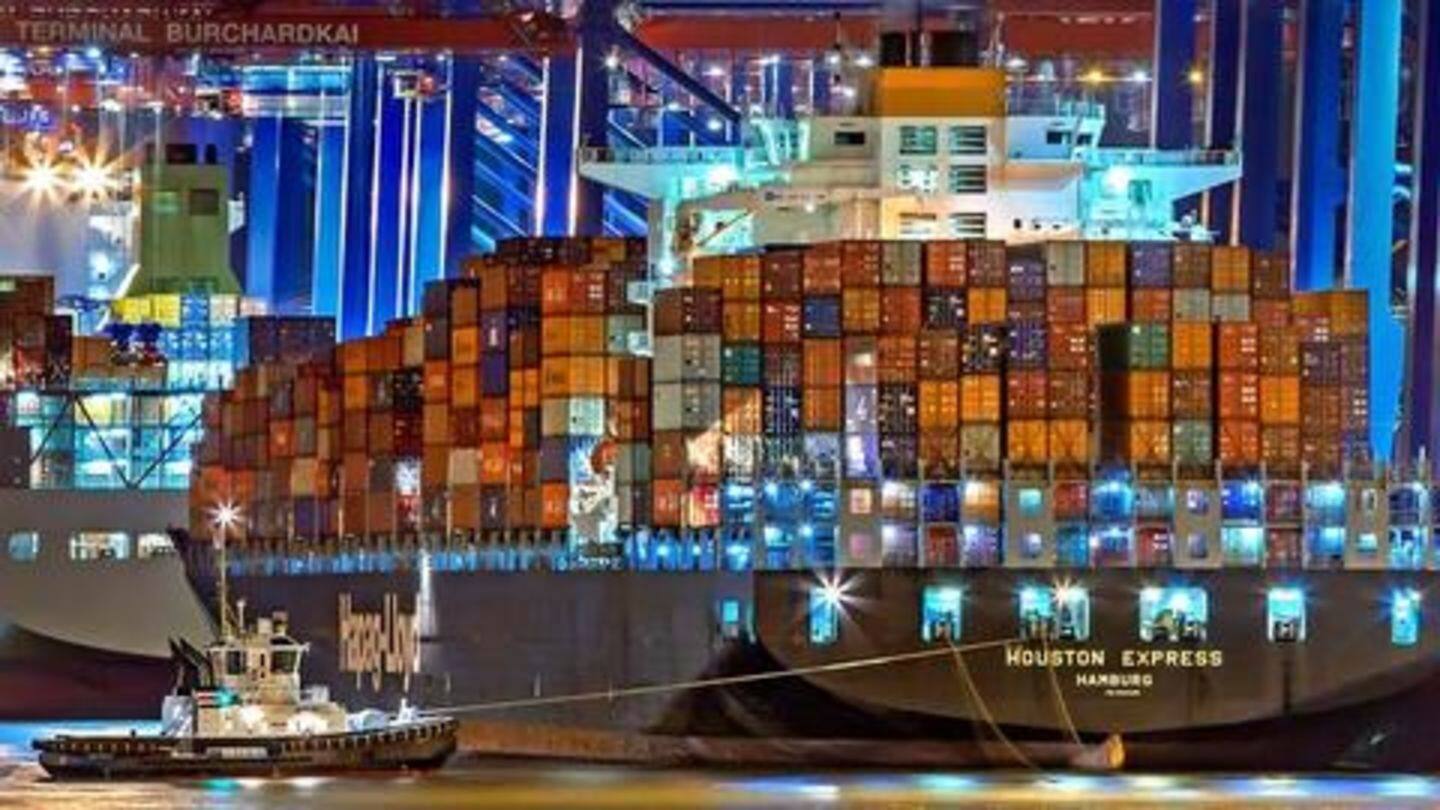
China's trade-surplus with US widened last year. Is US angry?
What's the story
China's trade surplus with US widened last year, data showed today, while the country's imports and exports fell in December as the long-running trade war begins to bite in the world's number two economy.
The surplus with the US is a major source of anger within the Trump administration, which imposed tariffs on hundreds of billions of dollars worth of Chinese goods last year.
Data
China's exports to the US sank last month
US has warned that more tariffs would be levied in future.
Despite the levies, exports to the United States grew 11.3% last year while imports rose 0.7%, expanding the surplus to $323.3 billion from $275.8 billion in 2017, customs data show.
However, in a sign that the White House's measures are having an impact, China's exports to the US sank last month.
Demands
Trump wants Beijing to buy more American goods
The figures come after a US delegation held three days of talks in Beijing last week in the first face-to-face meeting since Trump and Chinese leader Xi Jinping in December pledged a 90-day truce to resolve the crisis.
Trump wants Beijing to buy more American goods to narrow the yawning trade gap and allow foreign players better access and protection in the Chinese market.
US-Sino ties
Total imports of soybeans fell 7.9% last year
Traditionally China imports vast quantities of American soybeans in the second half of the year, long making it the most valuable import from the US.
But the buying fell off last year after China imposed a 25% retaliatory tariff on the commodity in the summer.
Total imports of soybeans fell 7.9% last year to 88 million tonnes, the customs data showed.
Comments
'Trade-surplus also reflects the highly complementary nature of the economies'
"The overall development of China-US trade in 2018 was still relatively normal, but the trade surplus did expand slightly," said Li Kuiwen, spokesman, customs administration.
"We believe this is because China and the US are in different stages of development and it also reflects the highly complementary nature of the economies," Li added.
The country's commerce minister also addressed the media on Friday.
Information
China's exports to the world fell 4.4% in December
The commerce minister said that China will work to straighten out trade frictions with the US this year. China's exports to the world fell 4.4% in December from a year earlier, while imports dropped 7.6%, reflecting sluggish demand at home and abroad.
Opinion
Import growth is likely to remain subdued, says expert
"With global growth set to cool further this year, exports will remain weak even if China can clinch a trade deal that rows back Trump's tariffs," said Julian Evans-Pritchard of Capital Economics.
"With policy easing unlikely to put a floor beneath domestic economic activity until the second half of this year, import growth is likely to remain subdued," he said.
Aim
China's customs-administration will work to 'improve country's business environment'
China's global trade volume rose last year but its surplus with the world fell 16.2% to $351.76 billion in 2018, as imports rose 15.8% while exports gained 9.9%.
The customs administration will work to "improve the country's business environment and expand foreign trade... in order to keep employment, the financial sector, foreign trade, foreign investment" stable, Li further said.
Future
US tariffs levied, China has to depend on its consumers
The spokesperson added there are some "hidden concerns" and "uncertain external factors" for development.
With US tariffs in place, the gloomy export picture has reinforced the need for Beijing to rely on its legion of consumers to grow its economy.
But a slew of bad data has added to concerns about China's economy, which is expected to have grown around 6.5% in 2018.
Fallout
Goods production cost in China's factories slowed sharply in December
China's growth was 6.9 % in 2017 and the 2018 data is the weakest rate in almost three decades.
China's annual passenger car sales fell last year for the first time in more than 20 years, as the trade war with US rocked consumer confidence and Beijing reined in car financing channels.
The cost of producing goods in China's factories slowed sharply in December.